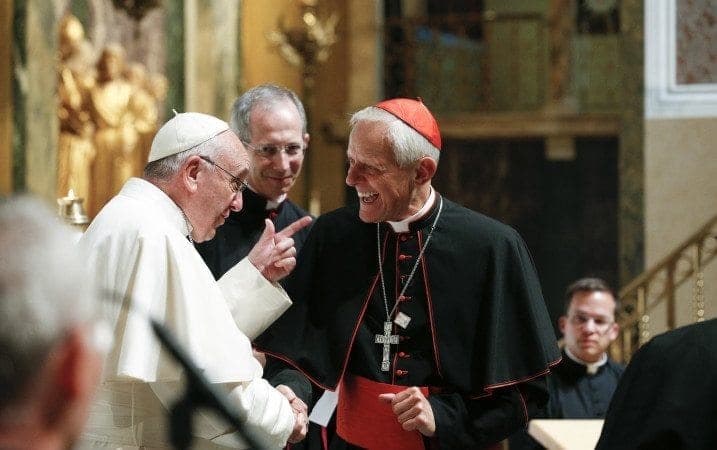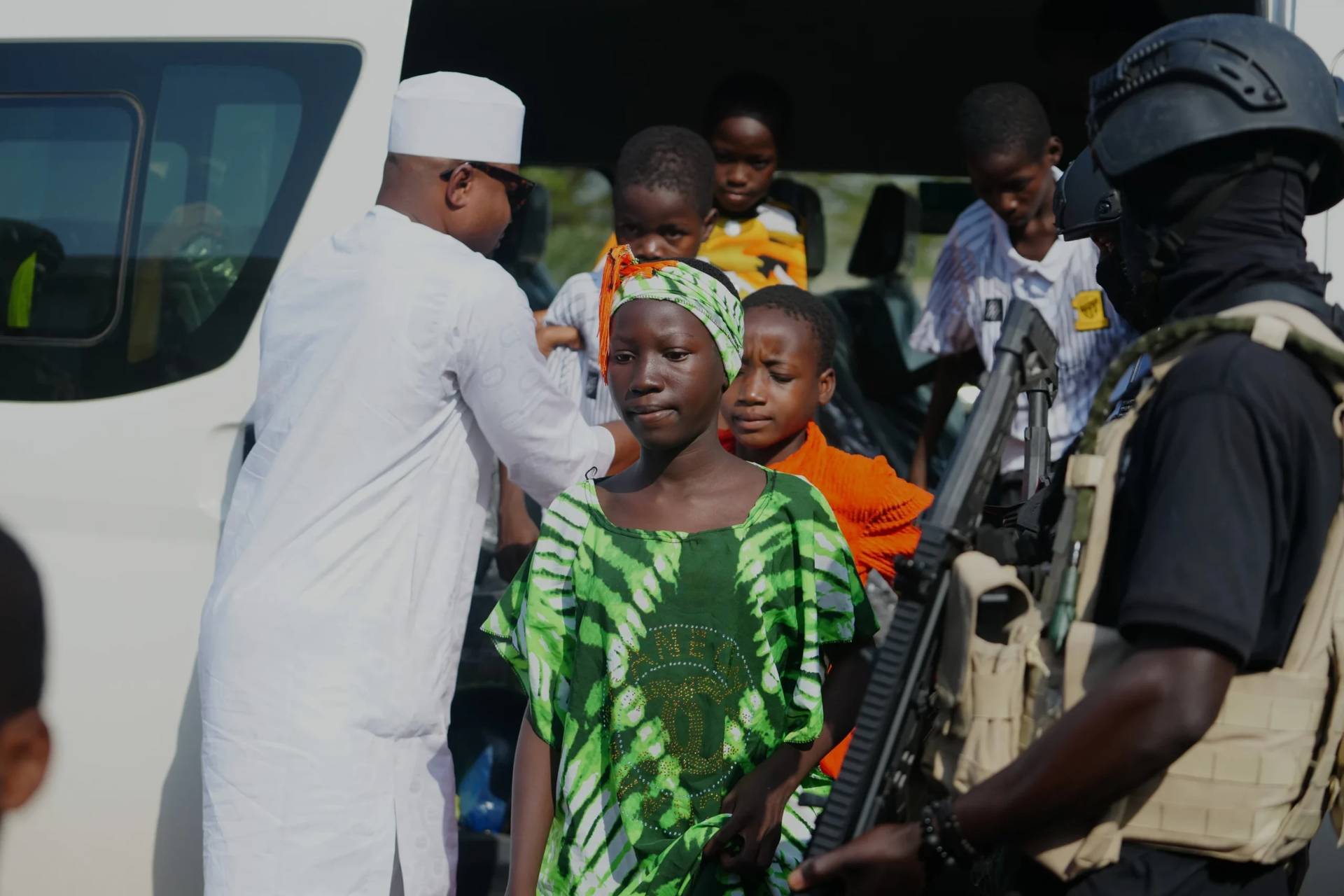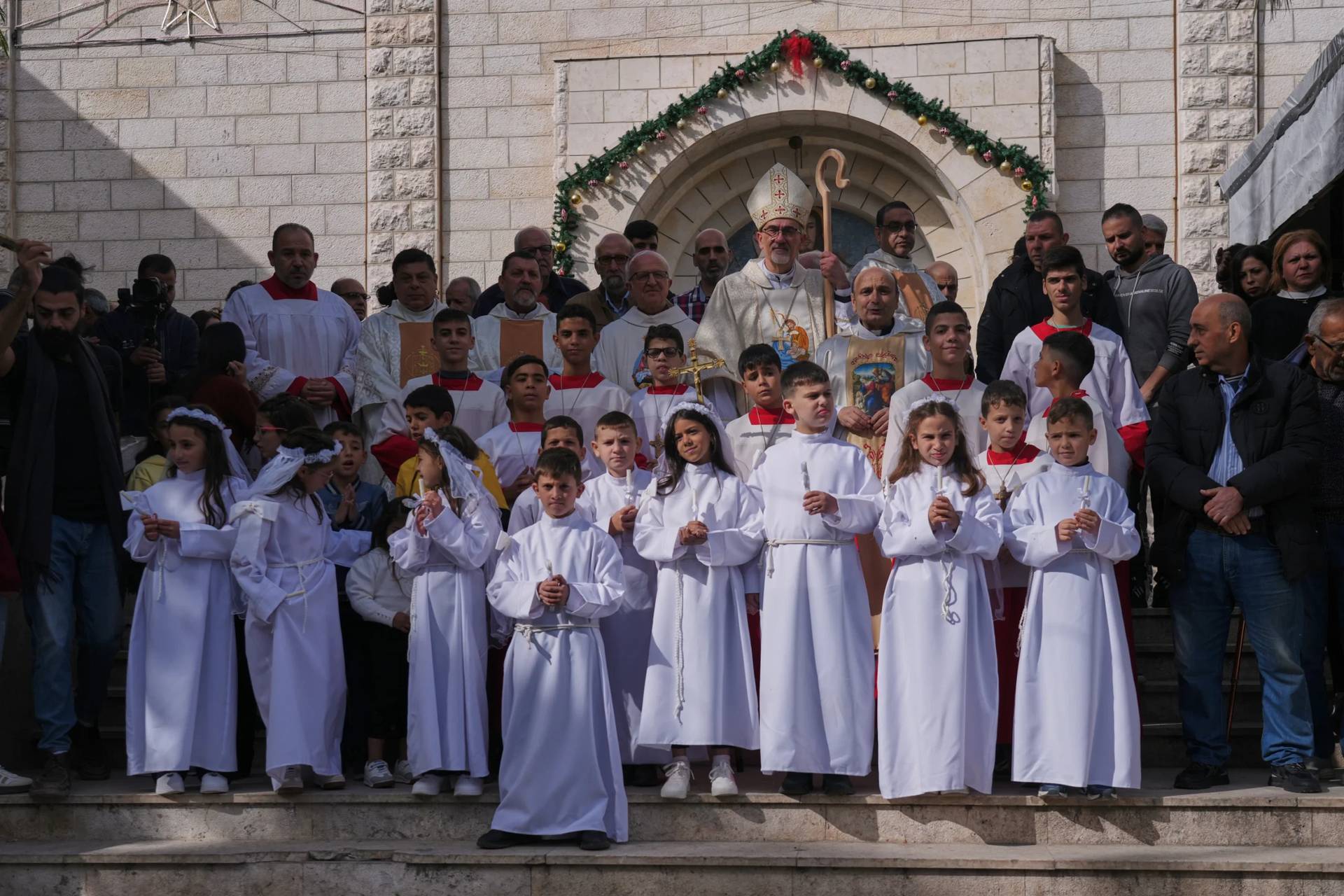With much of the U.S. Church still reeling from the abuse scandals involving ex-Cardinal Theodore McCarrick, Cardinal Donald Wuerl, Archbishop of Washington, has said that while he believes the Church has made progress, bishops must strive for “greater accountability at the level of the episcopacy” in both addressing and reporting abuse allegations.
“Everyone recognizes that words, good intentions, and new policies, while important, are not enough,” Wuerl said in a pastoral letter, published Aug. 3. “We must not only denounce abuse and take steps to stop abusers. We must remove even the appearance of cover-ups as we investigate and address allegations.”
A practical way to do this, Wuerl said, is to cooperate with the pope and his representatives to ensure that bishops are held accountable. Quoting a recent statement from the president of the United States Conference of Catholic Bishops (USCCB), Cardinal Daniel DiNardo, Wuerl said spiritual conversion is needed in order to “restore the right relationship among us and with our Lord.”
The current crisis, he said, “is an occasion to renew our own personal commitment to holiness, to constant conversion of heart, to generosity and fidelity, and to the highest standards of ministry – and to exhort our brother priests to do the same.” This task, Wuerl added, will require “the fortitude that has always been essential to fraternal correction.”
RELATED: Following McCarrick scandal, DiNardo acknowledges crisis and pledges reform
Both Wuerl and DiNardo’s statements come after Pope Francis, in an historic move, accepted McCarrick’s resignation from the College of Cardinals on July 28.
The Archdiocese of New York announced in June that an archdiocesan review board had conducted an investigation into accusations against McCarrick that he had sexually abused a 16-year-old altar boy while still a priest for the archdiocese in the 1970s. The accusations, they said, were found to be “credible and substantiated.”
Other reports of abuse have since come to light, including an 11-year-old boy who had been a family friend and several seminarians who claimed McCarrick had either molested them, or that he had been sexually inappropriate. McCarrick lost his red hat as a result, and could face a canonical trial at the Vatican.
In his statement, Wuerl recalled the trauma the U.S. Church endured as the result of the sexual abuse and cover-up scandals in 2002, which resulted in the drafting that year of the “Charter for the Protection of Children and Young People,” also known as the “Dallas Charter,” and which outlined standards for increased transparency and accountability in protecting minors at a diocesan level.
“What we are facing, in the media and from many of our people, is the question: Has anything changed,” Wuerl wrote, saying that in his opinion, the answer is yes. This is visible in Francis’s own recent actions, which have called bishops to “greater accountability.”
“Just as our Holy Father has provided us with an example of how to begin to heal these deep wounds, we, the bishops of our country, are presented with an opportunity to reflect on what has come to light, to minister to the pain and to respond as best we can to the questions that have been raised by this scandal, while moving forward to address in practical ways the very real and legitimate concerns for accountability.”
Recalling St. John Paul II’s words to U.S. cardinals April 23, 2002, in the wake of the scandals, Wuerl said it must be clear to Catholics that bishops and religious superiors are primarily concerned with the spiritual well-being of their flock, and that “there is no place in the priesthood and religious life for those who would harm the young.”
In this spirit, Wuerl stressed the importance of being able to address any allegation of abuse by a bishop, even if the allegation is later found to be untrue.
He noted how the U.S. bishops shortly after publishing the “Dallas Charter” in 2002 issued a “Statement of Episcopal Commitment,” which said that if a bishop is accused of sexually abusing a minor they are obliged to inform the pope’s ambassador, called a “nuncio.” Additionally, the statement also said that if a bishop becomes aware of sexual abuse by another bishop, then he too is obliged to inform the nuncio and must comply with civil law.
This commitment, Wuerl said, must serve as “the nucleus of a more effective mechanism to ensure greater accountability among ourselves.”
He suggested re-drafting the statement of commitment to include “clear, precise, practical steps and an outline” of whom is to be informed when there is an allegation of abuse, or when the rumors “become so consistent and persistent that they rise to the level of an unconfirmed allegation.”
Should a revised document such as this be approved during the next plenary session of the USCCB, it would help contribute to the demand for accountability, he said, adding “it is time to review our statement” and to propose “a renewed and expanded commitment to its realization with practical and clearly articulated measures.”
Wuerl said the review should not be limited to just a canonical level, but it must also address the spiritual and theological obligations of bishops to the people they serve, as well as the idea of fraternal correction, which is “as much a part of the life of the Church as her laws and procedures.”














